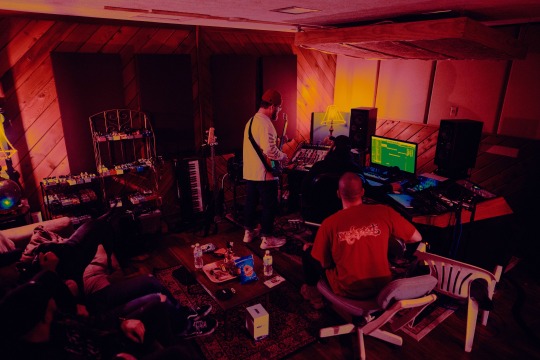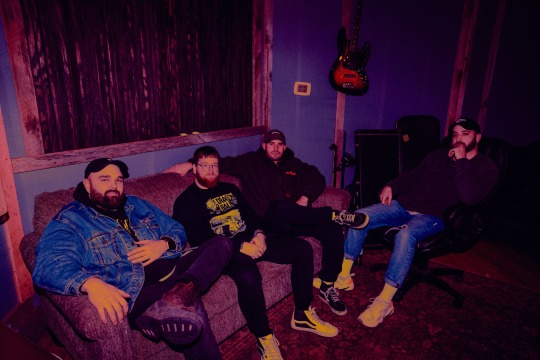
All photos by: Alex Bemis
Doing anything for almost ten years can certainly feel like an eternity. After days, months and years of repeating the same cycle over and over again, many people can feel burned out or in need of change. For noisemakers Gideon, after countless hours spent on the road supporting four full-length records, the Alabama outfit was definitely in need of something new.
Enter No Love/No One. Bursting out of the gates, the band’s new bruising two-track EP immediately slaps you in the face with brutal riffage and rugged vocals from frontman Daniel McWhorter. Coupled with a ruthless ending track titled “2 Deep,” it’s clear Gideon isn’t the same band from 2011′s Costs.
With a newfound writing approach of telling it like it is and not caring about anyone else’s opinion but their own, the seasoned four-piece, thanks in part to new bass player Caleb Derusha, have banded together for what should be very a productive and revamped 2019.
Working on the long-awaited full-length follow up to 2017′s Cold, guitarist Tyler Riley admits things will be different this time around saying, “Cold was the last time that we will ever probably do this, but we were still kind of being careful about what we were writing about or what kind of risks we were writing. So along with us deciding that we didn’t care what anyone thought about what we were writing lyrically, we also decided to do the same thing musically.”
With No Love/No One hitting harder than some might have expected, Riley reveals “it’s a nice little taste” of what’s to come. “There are way more elements that aren’t included in the EP,” he says. “It’s only two songs so you can only cram so much in. But everything that’s in those two songs is on this album and even crazier. And then there’s more to it as well.”
Now if the idea of a heavier no-fucks-given Gideon doesn’t excite you for their forthcoming album – which is nearly completed, by the way – maybe the remainder of our interview with Riley will. To check out what the soft-spoken guitarist had to say about writing and recording Gideon’s new record, be sure to look below. Afterward, for more from the band, head here.
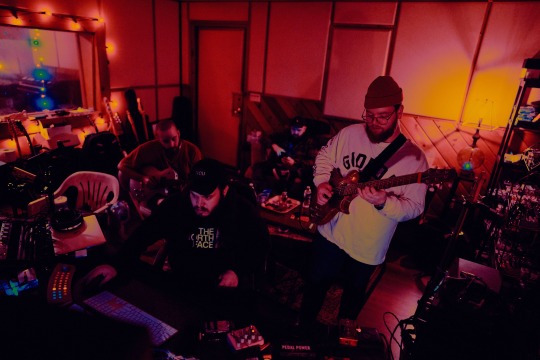
Where are you guys in the writing and recording process as of right now?
Tyler Riley: So we’ve got most of the record done. We got a couple songs that we need to touch up some vocals on and aside from that it’s a pretty complete project right now. I think we have one more song that we have to finish some lyrics for and we’re tracking those pretty soon and then it’ll be completely wrapped.
How long has this process been so far?
We had like four weeks recording and then we had a little bit of a break here in between when we finished drums because we did drums last and now just to finish out lyrics basically. We’re trying to make it as good as possible and all the other [songs] are so strong we’ve even scrapped a couple songs lyrically, trying to make sure that everything’s the best it can be. We spent like a week doing pre-production at one location. A nice friend was able to lend us their lake house for a week. So we went out there and finished up the songs as much as we could. And then we had two weeks in one studio and then a week in another studio to do drums. So that was kind of the process there.
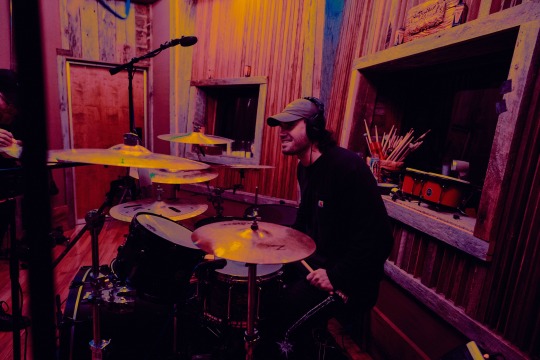
When you guys are writing, generally, what kind of headspace do you need to get into?
Well, for this record, we have our new bass player Caleb who has a heavy hand in this new record. And a lot of the process was him just locking himself in his room. He works less than everybody else in the band. So while we’re working, he would just be slaving away and sending us clips and stuff. And we’d send him notes and he was just doing the large majority of the footwork. So besides the first week in the studio where we were finishing writing together, it was mostly him doing that. And it’s interesting because he’s a dude that just started playing with us a little over a year ago, but he knows everything about the band. Like, he has been with us since day one. Not even like, as a friend, but more so as a fan and sometimes his [previous] band was playing with us. Like back in the early, early days. He knows everything about us, everything about our old bands. Like it’s crazy that we didn’t really link up until we did. But yeah, he’s had a huge hand in this process.
So was it refreshing to have someone else taking on that responsibility versus how you guys did your previous record?
Yeah, I mean, basically, this dude’s a little bit younger and almost, you know, hasn’t been beaten down by the career that we’ve had. Which [our career] has been great, but it’s been a long time. It’s been 10 years of going straight now, you know? So for him to come in and really be super appreciative of the situation – because this will have been, I guess, the best [career] opportunity he’s had so far – you know, that has been an inspiration in itself [and] just his attitude toward everything. We’ve developed like a newish direction because of his enthusiasm. I think it kind of in a way has been pretty good for us to get in touch with what we are as a band.
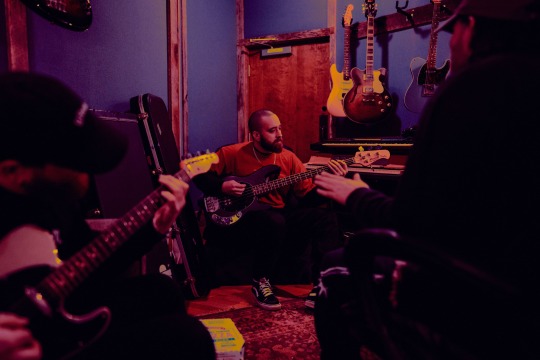
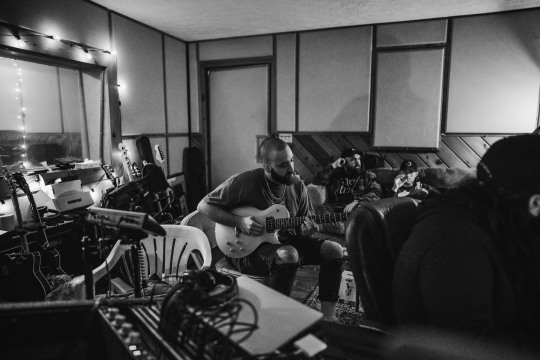
So aside from the addition of Caleb, what do you think is the biggest difference between Cold and this record you guys are working on now?
I’d say the biggest difference [was that] Cold was the last time that we will ever probably do this: But we were still kind of being careful about what we were writing about or what kind of risks we were writing or how hard we were going into our, like, hobby level talents. Because there are certain things that you do when you’re at home that you’re probably even better at than what you play on the road when you’re playing in the same band this long, you know? And some of those things you don’t get to utilize. So along with us deciding that we didn’t care what anyone thought about what we were writing lyrically, because that’s a big theme in this album, we also decided to do the same thing musically. Once we started, we were like, “Man, this really works not holding yourself back and just writing what you think is sick and what you know is going to be sick.” So I’d say that’s the biggest difference. It’s just we, kind of, in a way have taken off our shackles a little bit and we’re just kind of going wild with it.
Are some of the things you’re referring to lyrically related to your previous Christian affiliation as a band?
Yeah, I’d say for fans that have paid attention super hard, it’s kind of old news if you’ve actually kept up with everything and the process of how far the lyrics came from Costs to Cold even. In Cold, I don’t think that we really specifically mentioned anything spiritual at all. But that’s just part of our process. We were teenagers, literally teenagers, when we started playing this band coming from the Bible Belt, a place where you don’t have a choice what you’re going to do. The only way that any of our parents at the time would have let us travel across the country as 17-year-olds was if we could be like, “But we’re doing it for this, all that stuff you taught us.” They’re like “Okay sure, all right, go ahead.”
It’s not that it was fake. We really believed everything that we were doing at the time, but being on the road, you know, I just learned so much about myself and all of us did by doing that for so long. So yeah, naturally as we got older, things just kind of morphed into, you know, we didn’t want to shock everybody. We didn’t know what we thought. So we weren’t just going to denounce everything the second that we had a doubt. But yeah, so now we’re to a point where we’re feeling like, “You know what man? When we’re on the road we act like ourselves. When we’re hanging out with our fans at a show, we act like ourselves. So why don’t we just act like ourselves on the album?”
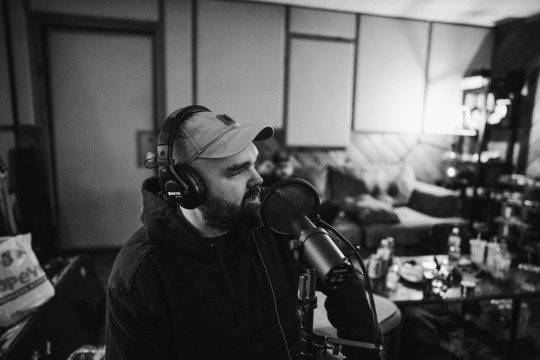
Has that been pretty freeing for all of you guys that now you can take a deep breath and just really show off your own personalities in a way?
Yeah, definitely. And you know, I feel like it’s just going to get easier and easier from here on out. This [album] is really breaking the seal with it. I mean, I guess we broke the seal with our last single/singles that we put out. A little EP, No Love/No One. I guess that was a bit of a transition. But yeah, this is going to be the first time it’s full on just whatever we feel like doing with no regard.
Yeah, that’s exciting. And referring to the EP, do you think that’s a pretty good example of what’s to come from you guys moving forward musically?
I’d say so. I say it’s a nice little taste. There are way more elements that aren’t included in the EP just out of, you know, it’s only two songs so you can only cram so much in. But everything that’s in those two songs is on this album and even crazier. And then there’s more to it as well.
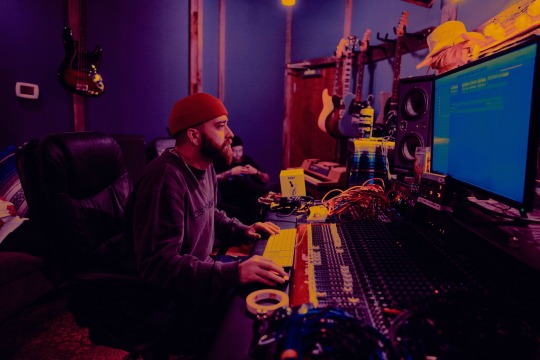
So what’s interesting, just looking into your guys’ various stuff online, on Wikipedia for the EP it says Gideon is “marking a heavier change in their sound.” That’s interesting considering you guys are already pretty heavy as it is, how can Gideon be “heavier”?
Yeah, I agree with that. I think that when you play your songs live a lot – in like 2017, we played almost 150 shows that year, like a little over 146 or something like that – you know, you just kind of learn what works and what doesn’t work, what’s fun, what’s not fun. And when we wrote that EP it was like, we’re going to do everything that’s badass. Everything that is sick when we play live, I just wanted it to be like that, you know? So we just kind of channeled what we do [live] and in a way. I feel like a lot of people that have seen us would say this, but even when we play the old songs now, we’ve kind of honed in on this, what makes it sound so heavy when we’re playing it live. We’ve been getting tighter and tighter. We try to anyway, we make a conscious effort to make that happen. That’s what we wanted for these songs, we wanted it to sound like it’s going to sound as aggressive as it sounds when we play. To me, when we play old songs, it’s more aggressive live than it was on the album. So I guess hearing it come to fruition on that EP probably seemed a little bit like, “Damn this is even heavier.” But really that’s just how we’ve been trying to do for a while.
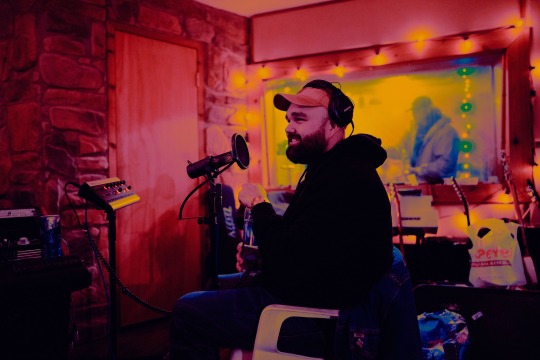
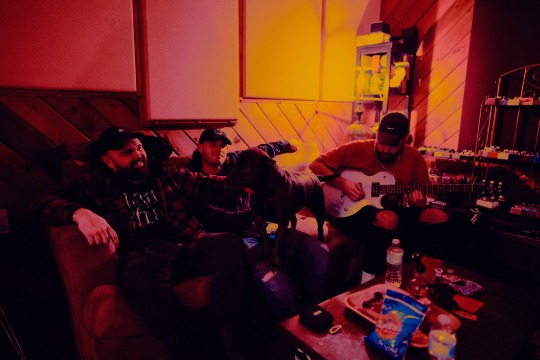
In the time since Cold came out, have you been paying attention to the heavy scene at all and how it’s been developing? If so, were those outside influences things that you brought to this record? Or did you guys try and push that aside to just focus on you guys directly?
Well, we all try to [pay attention to the scene], especially myself. I try to keep as connected to what’s going on in heavy music and underground heavy music. I try to keep as much in touch as possible. And it’s almost like, the heavy music and the heavy music scene just kind of formed around what we wish that we could have been playing before. So it felt more like, “Man, now we can really do ourselves because it’s coming back into style basically.” You know, breakdowns are not faux pas anymore. Metalcore is not a cuss word anymore. It used to be like a metalcore band is, you know, shunned. Basically, an emo or a scene band would be metalcore, you know? So yeah, it’s like, metalcore is cool again in a sense and it just made it better for us because we’ve been metalcore the whole time.
Where do you think that judgmental side from hardcore kids comes from vs metalcore?
Man, I think it’s just like when you discover something and it’s personal to you, sometimes you feel like you’re the only one that ever realized it, you know? Especially as I get older, and I’m starting to see these waves of certain genres becoming popular again and I’m sitting over here like, “Man yeah, when I was 16, I had a swoopy haircut and I loved that shit too. And now it’s cool again? That’s cool.” I don’t know but I think that kids just don’t realize that they think the thing that’s in front of them is going to be what they love forever and sometimes they close their minds too. They’re just so blown away by hardcore the first time that they really experience it because it’s such an inclusive genre, you know that they’re like, “I never want to let this go and this is the best thing that’s ever happened to me.” Which, I totally understand how you could get to that point, but I just think that everyone comes to the realization eventually that like, “Hey man, hardcore is awesome but it’s not everything in the world.”
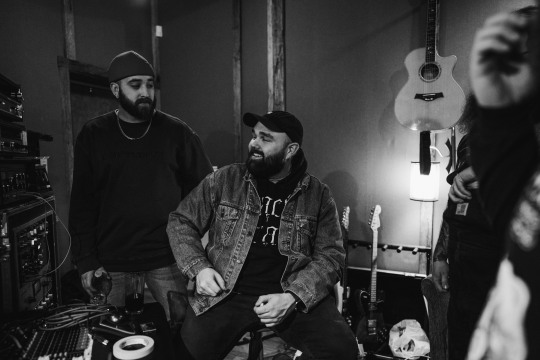
That’s a pretty good way to put it in. The idea that people will discover it and then want to protect it at all costs. But let’s talk more about your time in the studio. Looking through Instagram, you posted that you were doing some 12 hour days. What is it like in the studio with you guys? What’s the vibe usually?
Well, recording a record is just so much work. I feel like the only way you can really get through it – like you’re saying, we were doing those 12 hour days. I think the only way you can do it is really just put your head down and do it, just go to work. Just like writing aside, producing aside, everything having to do with being creative aside, it’s like the recording is just a huge undertaking. Just the amount of music that you’re putting down takes so much time. So the studio was mostly us just working 12 hours. Seriously, four weeks straight, not a single day off. 12 hours a day, me and Caleb were at the studio every single day. Four weeks straight, not working, just doing that. So it was like we had no choice but to just try and enjoy it. Have fun. Come up with the sickest shit we could, make sure that we’re playing our parts exactly as hard and as sick as we can. But yeah the vibe, it can get stressful, just like – every record is stressful. When you start getting down to that last week, it’s like “Man, are we going to finish everything?” And like I said, we still have a couple of things to do on vocals. So it was a bit of a stressful process, but I feel like it has to be like that. You know? If it was too easy the album would probably not be as interesting [laughs]. And maybe I’m just telling myself that because of how stressful it gets so I feel better, but I’m pretty sure that’s right [laughs].
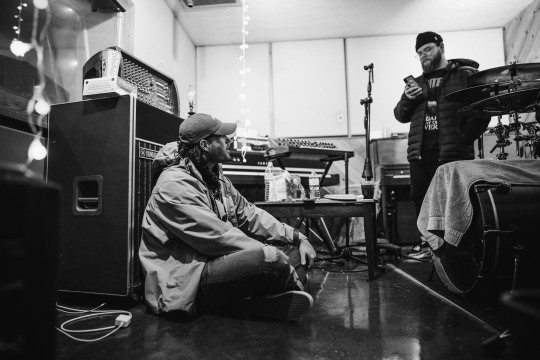
You mentioned just how hard you work for weeks at a time with no days off. When bands put out records, a lot of fans immediately listen to it and judge it right away without ever really considering the amount of time, effort and money that was put into making that record. That said, what do you think is one thing you would want to tell fans about what studio life is actually like?
Yeah, I mean, I feel like everyone should be aware of the fact that in the music industry, it’s all deadlines. It’s like, you only have a certain amount of time to create something out of nowhere. You know, how can you put a time limit on something like that? So the fact that we can all come together – especially as like, dudes in their 20s who have tattoos and are just like by society standards are kind of low-life dudes – the fact that we can get together and make all this happen, they just need to know that there’s so much that goes into it. Months and months of preparation and it comes down to the wire, and it’s a lot of pressure. We pour our hearts out as musicians, you know, this is our only way to cope with life. Not our only way, but this is our best way. That’s why we do this kind of thing. And when you go to the studio and spend weeks and weeks pouring your heart into something, I think it deserves, and I try to do this, I think it deserves an unbiased look. You know, try to put yourself in their shoes and figure out what’s going through a musician’s head when they record their record because it’s a lot of work and a lot of risk. And you really put yourself out there when you do something like this.
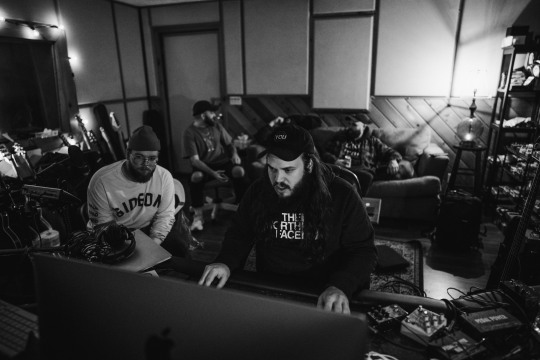
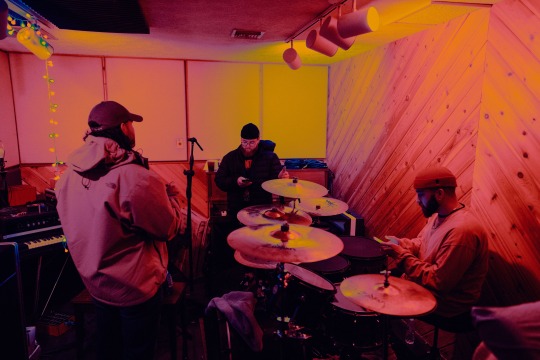
Yeah, that’s a really good way to put it. Unfortunately, with streaming, most people are able to just skim records without fully digesting it and understanding what it represents.
Yeah. You can listen to it one time and never listen to it again. That’s just kind of part of being in a band. It doesn’t bother me super hard. But there are times where I’ll read the comments and be like, “Man did you listen, did you like really listen to it? Were you having a bad day that first time you listened to it?” I mean, there are going to be people who hate this record. There are people who hate every record. There’s always someone. Not everyone’s going to like it but I just ask that people give new music, in general, a chance and try to put yourself in their heads. You know, that’s the beauty of music. Just try to figure out where they’re coming from. Sometimes you realize, “Oh damn, they are in the same exact headspace that I am” if you pay attention.
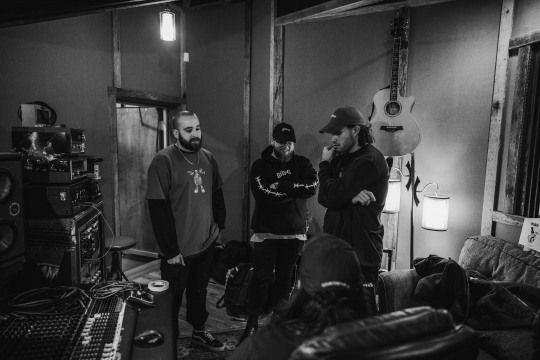
So with most Gideon records, you guys have usually guest features. Will there be any this time around?
Yeah, potentially. I think today they might be tracking one of them. And I’m not sure if it will be more than one, but yeah, we’ve always been a fan of that kind of thing. But we’ve gone back and forth on this record of just wanting people involved who are closer to us and kind of get the vision of who understands Gideon and who knows Gideon as people. So we’re hesitant to just like throw it out there and try to get some big names or like you know, whatever. We got Jamey Jasta on the last record and that was a dream come true. At this point, I’m not sure if we’re really shooting for anything like that but whatever ends up on the record will be on the record as long as it’s special and fits it. So we have at least one, and maybe more, if we have time.
Lastly, what is there about this record you want people to know that we haven’t covered already?
Well, expect the unexpected. That’s all I can say, really. This is going to be a wild record. I just hope everyone’s ready for it because we’re pumped. I think it’s the first time that we’ve really put together an overall vibe throughout the entire record that has been this cohesive, for sure. This is like an album, album. Listen to it from start to finish when you get it and feel it.
